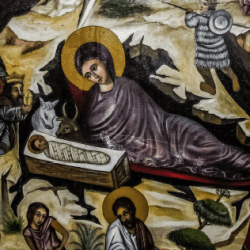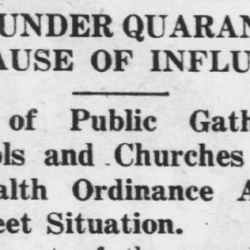On April 10, the Wall Street Journal reported on the digging of mass graves on Hart Island, New York, for bodies of the truly down and out, many homeless, not claimed at the morgue. Victims of the coronavirus, these people surely did not anticipate dying alone, un-mourned for, by a disease possibly originating with bats in Wuhan, China. This and a steady cascade of other grim stories and statistics concentrate the mind on an age-old question: how can a good, loving God permit such misery?
Many have understandably turned to Scripture to make sense of our moment. Others have looked to literature: Camus’s The Plague, say, or Boccaccio’s Decameron, set during Europe’s Black Death. For reasons not entirely clear to me, I found myself re-reading Boethius’s The Consolation of Philosophy.
Written in prison before his execution in a.d. 534, the work is the last will and testament of Boethius, a Christian public servant who had risen in the court of King Theodoric, the Arian ruler of the Ostrogothic Kingdom of Italy between 493 and 526, before falling from grace, being implicated in a conspiracy against the king.
Although a Christian, Boethius turned to classical philosophy in his time of need to find inspiration and make sense of his cruel lot. Indeed, hardly an explicit reference to Christianity is found in the entire work. Posthumously, however, Boethius has been hallowed by a wide range of Christian thinkers as an exemplar of sound judgment. In his Paradiso, Dante places Boethius among the twelve luminous spirits in the realm of the Sun, calling him “that joy who strips the world’s hypocrisies / bare to whoever heeds his cogent phrases.” Thomas Aquinas, also resident in Dante’s sun, leans on Boethius frequently in his Summa Theologiae and in other works. Throughout the Middle Ages, along with Pope John I (d. 523), Boethius was sometimes recognized as an orthodox martyr slain by a heretical (Arian) despot—and Christianized commentaries on his work circulated widely. But, again, hardly a trickle of explicit Christianity appears in the actual book.
So, what gives?
The remainder of this essay can be found here, where it recently appeared in Touchstone magazine.













